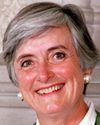Mr. Speaker, those of us who have been around for a number of years, although not actually in the House of Commons, were shocked and saddened earlier this month to hear the news of the passing of an officer emeritus of this House, the former Clerk of the House, Mr. Alistair Fraser.
Mr. Fraser was born into a family that values public service. Both of his grandfathers were distinguished statesmen serving in Parliament and at the provincial and territorial levels. Both his father and one of his grandfathers were lieutenant-governors of Nova Scotia and even today, if someone asks an old-timer in Guysborough the way to the Fraser summer place, one will be directed very clearly to what is referred to as the governor's house.
Immediately upon graduating from McGill University, Mr. Fraser joined the Canadian army, serving until the end of World War II. After serving briefly on the staff of the Hon. Brooke Claxton in Ottawa, he attended the University of British Columbia law school, practising law in Prince Rupert before returning to Ottawa as executive assistant to the Hon. James Sinclair. Subsequently he served in that same position with the Hon. Ross MacDonald and the Hon. Jack Pickersgill.
Mr. Fraser was twice a candidate for the House of Commons: once on the west coast in Esquimalt—Saanich and once on the east coast in Pictou.
Mr. Fraser was appointed deputy clerk in 1966 and clerk, the following year. He performed his duties with dignity, wisdom and an unequalled sense of humour.
Although Mr. Fraser served at the clerks' table through the most tumultuous years in Canada's history, he maintained excellent relations with a number of political personages, including the Right Honourable John Diefenbaker, the Honourable Allan MacEachen, David Lewis, Réal Caouette, and others unnamed.
For myself, I would like to add that Alistair Fraser touched the lives not only of parliamentarians, but of the people working in the House of Commons during his time there. As you know, I was a young employee of the House of Commons at the time and could see firsthand the kindness, the wisdom and the intelligence of my boss, Alistair Fraser.
When he retired in 1979, more than the clerk left the House of Commons. We lost a mentor, an adviser and, I would say, a friend. Following his retirement, Mr. Fraser continued his involvement in the area of parliamentary affairs through the publication of two editions of Beauchesne's parliamentary rules. In his visits to the hill, he always brought along his enthusiasm and his sense of humour.
He will be sorely missed. I offer my condolences to the members of his family, to all his friends and, I would add, to the employees of the House and the table officers, all of whom shared this moment of sadness.










